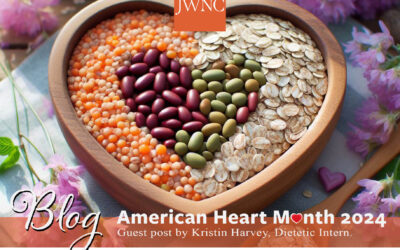Blog
Stocking your fridge/freezer
Busy schedule? Stock your freezer! With batch cooking, meal prepping, and smart premade picks, eating healthy can be quick, easy, and stress-free—even on your busiest days.
Perseitol, a new FODMAP discovery in avocados
Monash University has identified a new FODMAP, perseitol, a polyol found in avocados. Unlike sorbitol, perseitol decreases as avocados ripen. This discovery impacts FODMAP challenges and portion guidance, with US users needing slight measurement adjustments when using the Monash app.
About Legumes
Legumes are a nutritional powerhouse and an adaptable addition to meals, offering high protein and fiber content with minimal fat. They’re excellent for blood sugar management, cholesterol reduction, and supporting conditions like PCOS. While their low Glycemic Index makes them ideal for balanced eating, those with IBS may need to select low-FODMAP options. With proper preparation and hydration, legumes can fit seamlessly into most diets.
Hydration and why it is important
Hydration is crucial for overall health, impacting vital functions, easing constipation and enhancing satiety. Misinterpreted thirst can be mistaken for hunger, and increasing fluid intake gradually helps mitigate frequent restroom visits. This incremental approach allows the body to adjust, making it easier to meet hydration goals without disrupting daily routines.
Nutrition and mental health therapy – Mental Health Awareness Month
It's not uncommon for clients seeking nutrition therapy to also grapple with mental health issues. Sometimes, our conversations center more on improving eating habits while navigating the complexities of anxiety, depression, or both. It's a challenging journey, to say...
Blue Zones- What is it? How do we embrace the blue zone? – Guest post by Kristin Harvey, Dietetic Intern
Kristin delves into the discovery of a cookbook titled 'Blue Zones Kitchen: 100 Recipes to Live to 100' and the ensuing exploration into the concept of Blue Zones. These are regions around the world known for their populations' longevity. The Blue Zone lifestyle...
Exercise As Weather Gets Nicer – Joyful Movement – Guest post by Kristin Harvey, Dietetic Intern
Joyful movement is the term for making enjoyable physical activity part of your routine instead of relying on workouts that are difficult to implement or dreaded. This can be helpful for all people, but especially for those trying to manage blood sugars, maintain heart health, manage GI symptoms and relieve stress. You can even increase intensity within these enjoyable activities. Read on for more information!
American Heart Month 2024 – Guest post from Kristin Harvey, Dietetic Intern.
February is American Heart Month. We are urged to concentrate on and broaden our understanding of cardiovascular health in February. It serves as a reminder that you can prevent heart disease and maintain the health of your heart! We may do this by making heart-healthy dietary choices or by including joyful movement into your daily routine. “Heart healthy” does not necessarily require restriction. We may replace them with pleasurable, healthy alternatives. You’ll be on the right track if your diet is centered on whole grains, veggies, and fruit. Why are whole grains the main component of a heart-healthy diet? Read on to learn more!
Fiber and Low FODMAP – guest post by Megan Medeiros
Fiber is a very important nutrient for maintaining good health. For those with IBS, certain FODMAPs can be triggers for GI discomfort. While in the elimination and challenge phases of the low FODMAP diet, fiber goals can be harder to reach. This doesn’t have to be the case. Read on for tips on how to incorporate fiber foods while in the throes of the low FODMAP diet in a guest post by dietetic intern, Megan Medeiros.
Self-talk, judgement and assigning morality to foods
In today’s fast-paced world, it’s crucial to prioritize mental health and self-compassion. Explore how positive self-talk can revolutionize your relationship with food. Say goodbye to the ‘good vs bad’ dichotomy and embrace a balanced, judgment-free approach to nutrition. Join us in destigmatizing food and cultivating a kinder inner dialogue for a healthier, more balanced life.









